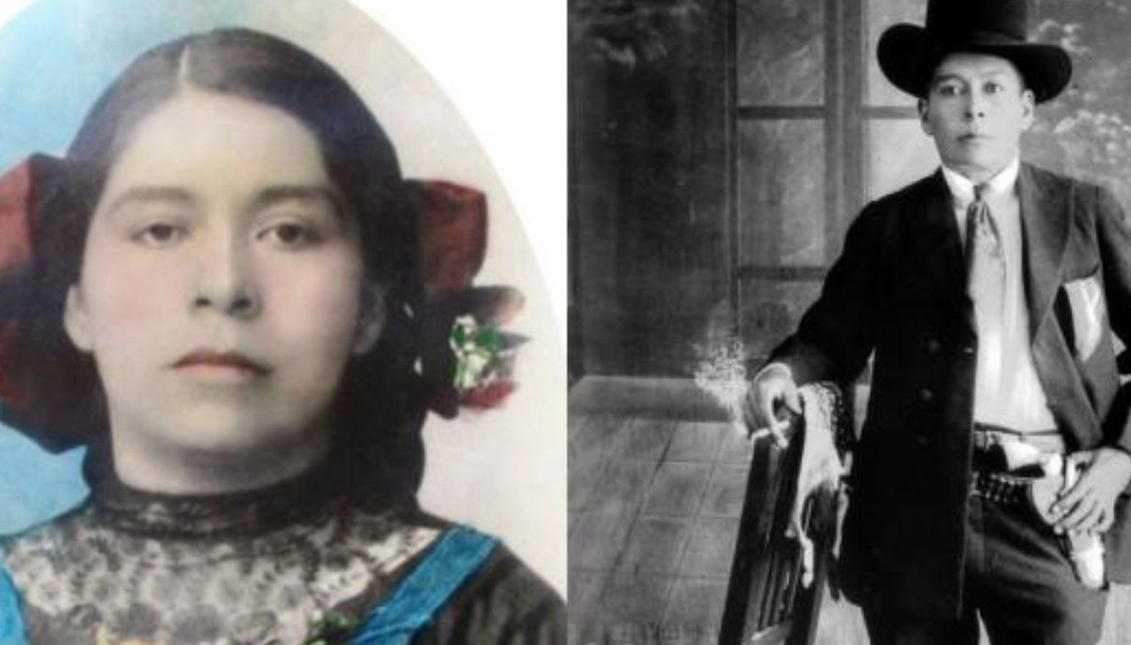
The Zapatista 'trans' colonel who served in the Mexican Revolution
Though he was born a woman, Amelio Robles dressed and behaved like a man. In fact, he was one of Emilio Zapata's most respected and feared soldiers.
He joined the Zapatista movement at the age of 23 as a man and remained so until his death in 1984. Both privately and publicly, the soldier Amelio Robles was called "Amelio," even though everyone knew that underneath his belt, his military scarf, his hat, and his virile attitude was a biologically female body.
It was 1912. Decades would pass before the first LGTBQ+ groups would take to the streets to fight for their rights, and the first sex reassignment surgeries would be performed. In the revolutionary Mexico where Robles was born and lived, there were only two ways to be: Man or Woman.
However, he found a way to move towards his true identity, and because of his courage, his good shooting skills, his ability as a horseman, and as a lover of many women, few dared to challenge him.
"It is an exceptional case because it is documented, although you can't rule out that there were others," researcher Gabriela Cano, who brought Robles' story to light in the book Andar de soldado viejo, tells El País.
For the historian, who studies how social roles of both sexes were constructed at the beginning of the century, the colonel was neither transgender, nor a transvestite, nor a lesbian woman who adopts male behavior, but a transgender man in a binary society.
"Women were always present, but were never recognized in the Army or by their partners."
"Armed conflicts are often idealized, but they were extreme contexts of death, suffering, and pain, and it is in the war that the gender parameters that existed are shifted," she concludes.
"Women were always present, but they were never recognized in the army or by their partners," she says. "There is a silence in historiography, and the sources of the time only throw out information on a piecemeal basis."
RELATED CONTENT
In this fierce and sexist context, Amelio Robles not only survived but ended up joining the federal army at a time, 1918, when the conflict was about to end.
"It is in war that the gender parameters that existed are shifted."
She even achieved what no biological woman had ever done before, joining the Socialist Party of Guerrero in the 1930s - the recognition of the female vote came two decades later - and being considered a war veteran and honored in 1978. How did he succeed?
Apparently, his good relations with other military commanders who later held political positions allowed him to alter his birth certificate and avoid medical reports, such as the one he received in 1948, which accredited six gunshot wounds but did not mention anything about his anatomy.
However, it was not always easy for him.
The same colleagues who praised his courage and his achievements in public called him "la coronela" in private, and the Mexican press treated him as if he were a freak: "La coronela is a man, and yet he was born a woman," reported El Universal.
Today, when Mexico is experiencing the worst wave of femicide in its recent history - a woman dies every two hours - and wherein states like Guerrero, same-sex marriage isn't legal, Colonel Robles' story reminds us that several revolutions can be fought at once.











LEAVE A COMMENT: